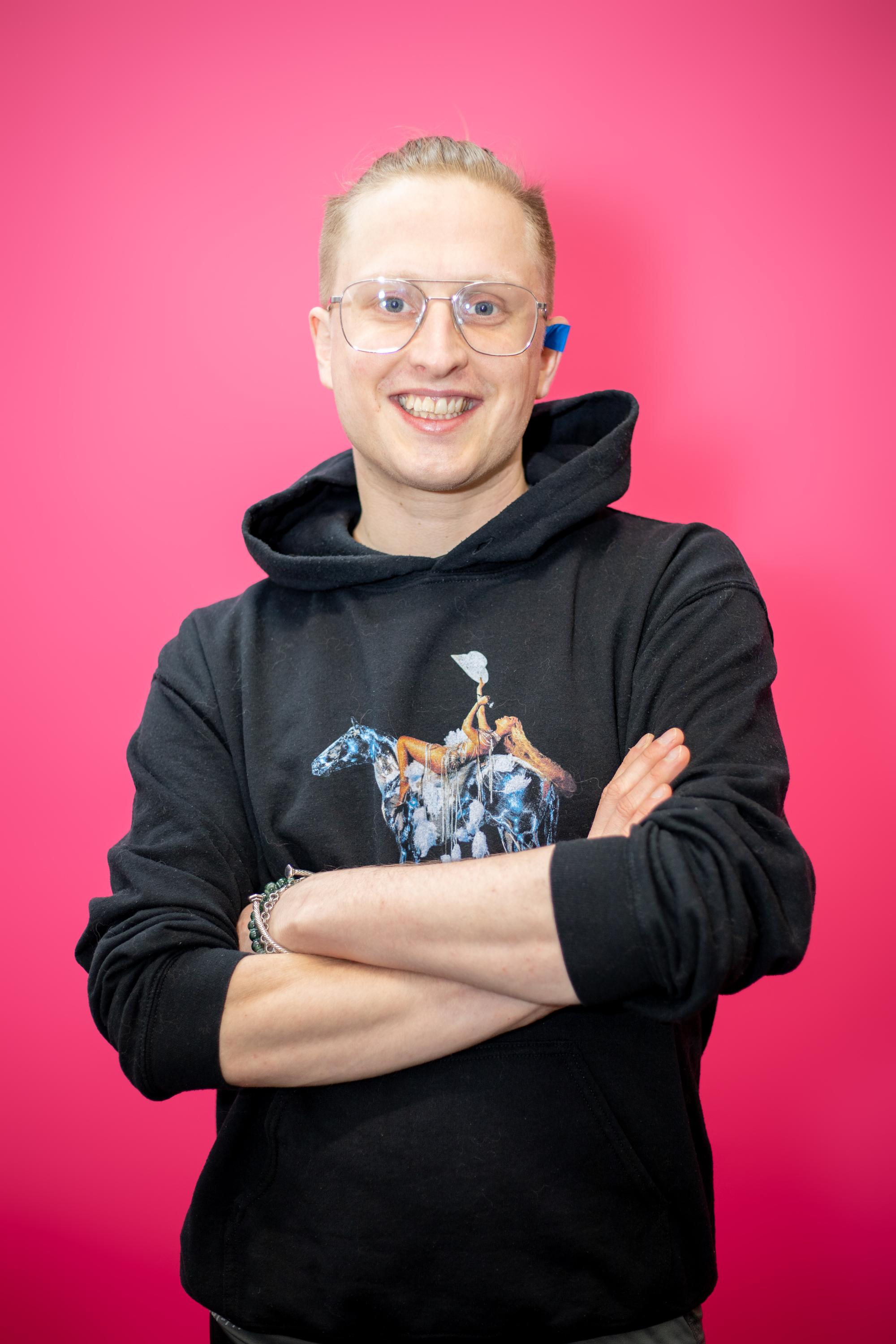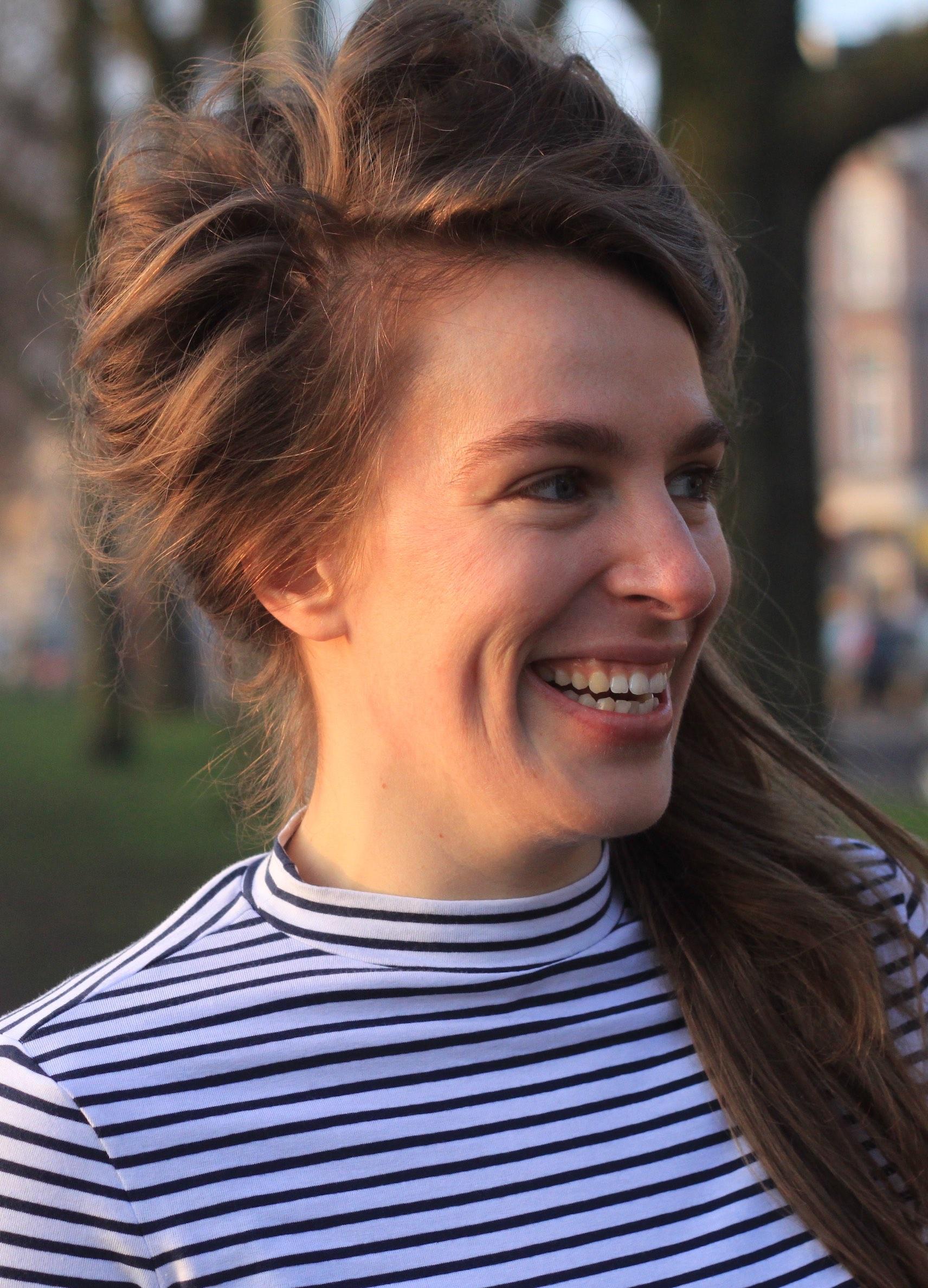The DiDi Project is part of a collaboration between the LDE GMD Centre, Leyden Academy on Vitality and Ageing, the Netherlands Interdisciplinary Demographic Institute (NIDI) and the University of Applied Sciences Utrecht. By looking at multiple diversities and their intersections from various disciplinary perspectives, this project leads to a more complete understanding of diversity policies and practices and related dilemmas in a society of multiple diversities.
In this episode, we speak with Lieke van der Veer (Postdoc, Erasmus University/DIDI Project) and Kay Mars (Ph.D. Candidate, Erasmus University/DiDi Project) about their academic and professional background, their work on the DiDi Project, and the importance of understanding non-migration related diversities.
By Vanessa Ntinu
Thank you for sitting down with me, Lieke and Kay. Please tell me a little about yourselves (your professional and academic journey until now).

Lieke: Thanks for having us! I am currently a Postdoctoral Researcher at the Department of Public Administration at Erasmus University. I'm trained in Political Science, Political and Social Philosophy, and Philosophy of Science at the University of Amsterdam. Earlier this year, I completed my Ph.D. in Urban Anthropology. I feel like in my current profession, I draw from this multidisciplinary background in order to acquire interdisciplinary insights into the workings of diversity and inclusion policies.
Kay: I am currently a Ph.D. Candidate in the Department of Public Administration and Sociology as well. I am working on the DIDI project, and we have just completed our first year - time went fast! Before I started as a Ph.D. Candidate at EUR, I worked at the Department of Sociology and the Refugee Academy at the Vrije Universiteit Amsterdam for nearly four years. I have been trained as an anthropologist and urban geographer. Very similar to Lieke's path, I also traveled a lot between different disciplines. I started in anthropology, then moved to urban geography, then worked for a few years in sociology and currently I’m getting more familiar with public administration. These different disciplines have allowed me to work with different theories, concepts, and forms of knowledge. To me, it is also very exciting to work with so many different people, both inside as well as outside academia.
These different disciplines have allowed me to work with different theories, concepts, and forms of knowledge"
Lieke, you have dabbled in the discipline of Philosophy and now Migration Governance - how are these two disciplines aligned in furthering your understanding of migration and diversity?
Lieke: Ah, that's a good question. What Political Philosophy and Philosophy of Science do, for me, is help to ask particular questions: questions that inquire into the conditions of possibility that structure a particular field, in this case, the governance of migration. Combining this with insights from Anthropology—that encourages naive fascinations about how seemingly basic things work—I find myself wanting to get a thorough and situated understanding. My background has trained me to not immediately be satisfied by obvious answers but to dive deeper into them. Stories that people share about how things work are a great ethnographic entry point into studying something larger.
Kay, your latest MSc thesis project which was centered on the mapping of urban queer sexualities in Porto Alegre (RS), Brazil, is incredibly captivating. Can you tell us a little bit about it? How has it assisted your work in the DIDI project?
Kay: Yes, of course! My MSc thesis project was conceived when I did a semester abroad in Brazil during my Bachelor'. When I was back in the Netherlands and had to do a MSc thesis project, I wanted to work more with decolonial knowledge and theories, and decided I had to go back to Brazil. During my thesis project, I learned to critically review Eurocentric theories and concepts, and I learned how to let my work be guided by the thinking and doing of Global South scholars. I think everything I did during this research still inspires me. Even now while I'm working with diversity at Erasmus University, I keep this call for a decolonization of knowledge production somewhere at the back of my mind as an inspirational force that somehow guides my current work.
My background has trained me to not immediately be satisfied by obvious answers but to dive deeper into them"
Can you both tell me a little about your work/role in the DIDI project?

Lieke: Within the DIDI project, there are several fields and subdomains; for one researcher it might be sports, for another care, and another housing. Whereas each of the PhDs closely look into one of these subdomains, my role is a bit more meta, looking at diversity dynamics that go beyond specific domains. For instance, in specific Dutch municipalities, I’m interested at Aldermen who put effort in making diversity into a policy priority. How do they understand diversity, how do they gather knowledge about it, and how do they distribute this knowledge over local bureaucracies? Given that office terms are short and pressure to deliver is high, how do they get people onboard for their diversity-related mission? What is their administrative artistry? My job is to find that out. A related research interest is to assess the ways policy practitioners are trying to make diversity policies more sustainable and continuous. What I observed is that municipalities distribute some of these functions amongst frontline workers such as diversity advocacy coalitions. My role is to assess the intricacies of these relationships, which include funding and collaborations between certain actors, and assess the dilemmas and benefits of such ties. Another part of my role involves looking into places without established diversity policies yet, such as localities in Zeeland and Alkmaar, and trying to understand how that work is then done there.
Kay: As I mentioned, I'm one of the PhD researchers on the project and I focus on the implementation of diversity and inclusion in the policy domain of sports. I'm predominantly focusing on so-called policy practitioners who have to work with diversity policies in their everyday life and their everyday work and not necessarily the people that design policies behind their desks. This means I work a lot with case managers, sportmakelaars, and buurtsportcoaches. But I also work a lot with community organizers and self-organizations who have set-up specific sport initiatives throughout the city. In my project, I have labeled this group as “grassroots policy practitioners”.
I'm now still focusing really on getting the proposal clear. There are still a lot of questions about which direction I'll be heading towards. I want to further understand how policy practitioners do Diversity in an intersectional way, or why they deliberately choose to not do Diversity intersectionally. Finally, another theme that Lieke and I are working on is reimagining future possibilities of shaping sports in new, alternative ways that are more transformational in actualizing inclusive sport environments.
I want to further understand how policy practitioners do Diversity in an intersectional way, or why they deliberately choose to not do Diversity intersectionally".
Often you see a synonymity between migration and diversity. Why is it important for the conversation of diversity to include non-migration identities?
Lieke: Migration-related diversity is how diversity is most often operationalized. Though there have been attempts by policy practitioners in certain localities to bring in more intersectional and broader understandings of diversities, these intersections appear difficult to act upon. What I've seen for instance is that some policies that are intended to support grassroots organisations in refugee assistance and advocacy are less responsive to grassroots organisers who are positioned in a somehow complex field of forces. It struck me for instance that in one case, municipal support proved difficult to access for a particular grassroots organiser who is a Black woman on benefits with a forced migration background.
Kay: It's important to look at other forms of diversity as well, but that doesn't mean you shouldn't do race/ethnicity work. And we should not forget that all forms of diversity overlap and are linked together. You cannot do gender, without doing race, and vice versa. I think in more traditional Dutch or European scholarship, there's also this kind of weird obsession with migration and race. It feels like race and ethnicity (and gender) are taken as default categories in diversity research, but without any critical considerations on why and how these categories are used. I think that's also something that maybe we must reflect more on, especially if you look at who's doing the research.
Migration-related diversity is how diversity is most often operationalized. Though there have been attempts by policy practitioners in certain localities to bring in more intersectional and broader understandings of diversities, these intersections appear difficult to act upon"
Why is a center like the LDE GMD Centre important and how can the Centre continue to support your work?
Kay: I think the Centre can play an important role in connecting different scholars with each other. As a junior scholar, it has allowed me to connect with senior scholars who do research in similar fields. But I could also connect with fellow junior scholars, which was equally important for me. I also appreciate that I can connect with researchers from other universities and other disciplines. I think the LDE GMD Centre could invest more in creating spaces – e.g. small-scale workshops – in which we as scholars can exchange ideas with each other. Additionally, the Centre could also serve as a kind of knowledge infrastructure where different forms of knowledge (academic, professional, experiential) can come together.
Lieke: It's great that such expertise is brought together in a Centre. I always feel one is welcome to share different insights with another. I think it would be great if we can learn more from senior scholars, and the other way around. This sort of engagement can be facilitated with more visible infrastructures of communication between senior and junior researchers, that's something the Centre can encourage more.
